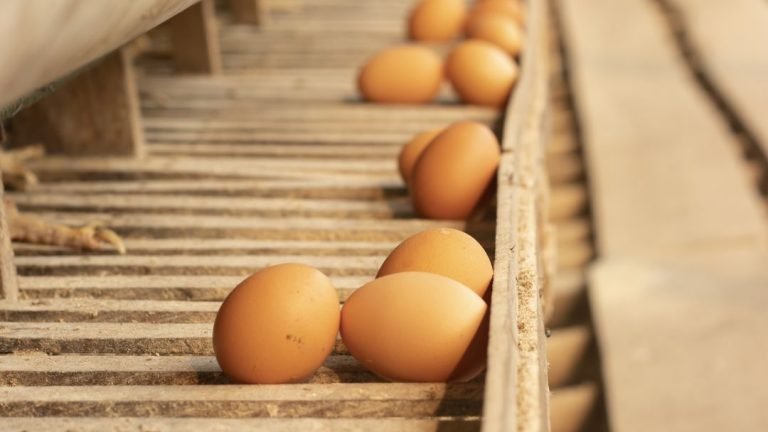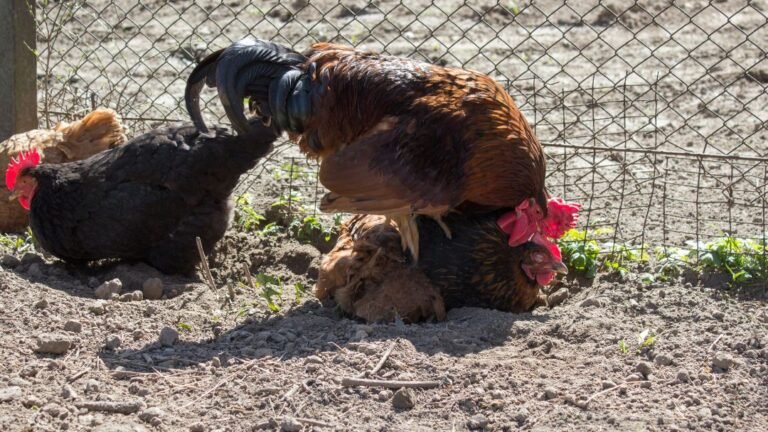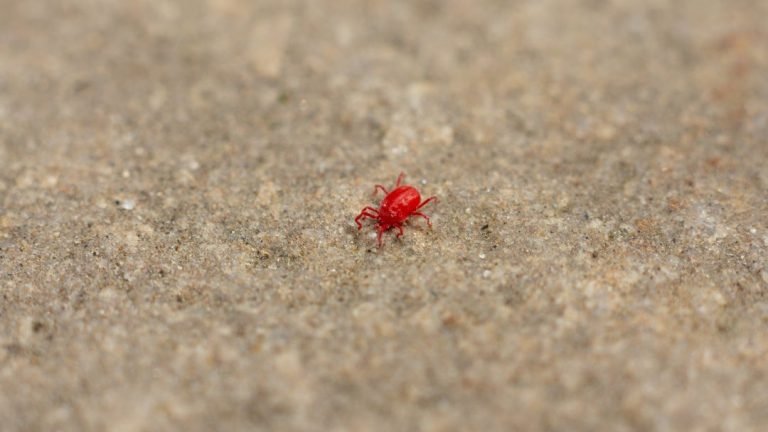Yes, chickens can eat pineapple. Pineapple can cause a tingling sensation on their tongues.
Chickens are omnivorous animals and can consume a variety of fruits, including pineapple. Pineapple is rich in vitamins, minerals, and antioxidants, which can be beneficial for their health. However, it’s important to note that pineapples contain a compound called bromelain, which can cause a tingling sensation on the chickens’ tongues due to its enzyme activity.
While this sensation is harmless, chickens might not prefer the taste. Therefore, it’s recommended to introduce pineapple to their diet in moderation and observe their response. By doing so, you can ensure that your chickens receive a balanced and healthy diet while enjoying the occasional treat of pineapple.
The Nutritional Benefits Of Pineapple For Chickens
Feeding your feathered friends a balanced and nutritious diet is crucial for their overall well-being. While most chicken owners know the importance of staple foods like grains and vegetables, there may be some curiosity about incorporating fruits into their diets. One fruit that often sparks interest is pineapple – a tropical favorite known for its tangy sweetness. But can chickens eat pineapple? Let’s explore the nutritional benefits of pineapple for chickens and determine how it can positively impact their health.
Pineapple As A Source Of Vitamin C And Antioxidants
Pineapple is packed with vitamins and minerals that can contribute to your chicken’s health. One noteworthy quality is its high content of Vitamin C, a vital nutrient known for its antioxidant properties. Vitamin C plays a crucial role in supporting the immune system, and just like humans, chickens need a well-functioning immune system to ward off illnesses.
Table: Nutritional Content of Pineapple (per 100g)
| Nutrient | Amount |
|---|---|
| Vitamin C | 47.8 mg |
| Vitamin A | 58 IU |
| Potassium | 109 mg |
| Calcium | 13 mg |
| Iron | 0.3 mg |
Potential Positive Impact On Immune System And Overall Health
By incorporating pineapple into your chicken’s diet, you are providing them with essential nutrients that can strengthen their immune system and promote overall health. The antioxidants present in pineapple help combat free radicals in their bodies, which can cause cellular damage and increase the risk of diseases. Furthermore, the natural enzymes found in pineapple aid in digestion and can support gastrointestinal health in chickens.
In addition to strengthening the immune system, pineapple consumption may contribute to a healthier respiratory system. Chickens are prone to respiratory issues, such as sinusitis and bronchitis, which can affect their breathing and overall well-being. The anti-inflammatory properties of pineapple can potentially alleviate some of these symptoms and promote respiratory health in your feathered friends.
Recommended Guidelines For Incorporating Pineapple Into A Chicken’s Diet
It’s important to exercise caution when introducing any new food to your chickens’ diet, including pineapple. Too much of a good thing can be harmful, so moderation is key. Here are some recommended guidelines:
- Start by offering small quantities of pineapple as a treat, gradually increasing the amount over time.
- Ensure that the pineapple is fresh and ripe for optimal nutritional value.
- Remove the pineapple skin, core, and any seeds, as they can present choking hazards to your chickens.
- Mix small pineapple chunks with their regular feed or scatter them in the coop, encouraging natural foraging behavior.
- Monitor your chickens’ response to the pineapple, watching for any adverse effects such as diarrhea or digestive upset.
- Keep in mind that while pineapple can be a beneficial addition to their diet, it should not replace the necessary grains, vegetables, and protein sources that are essential for their nutrition.
Remember, a happy and healthy flock is a result of a balanced diet, suitable living conditions, and lots of love. As always, consult with a poultry expert or veterinarian if you have any concerns or specific questions about your chickens’ dietary needs.
The Risks And Precautions Of Feeding Pineapple To Chickens
Pineapple may be a delicious tropical fruit that many of us enjoy, but when it comes to feeding it to our feathered friends, we need to be cautious. While chickens can eat pineapple, there are certain risks and precautions that need to be considered. In this section, we will delve into the potential impact of pineapple’s acidic nature on digestion, the possibility of allergic reactions and sensitivities, as well as the recommended quantity and frequency of pineapple consumption for chickens.
Acidic Nature Of Pineapple And Potential Impact On Digestion
Pineapple is known for its tangy, sweet taste, but it also contains high levels of acidity. This acidic nature can have an impact on the digestive system of chickens. While chickens do have a more robust digestive system compared to humans, excessive consumption of acidic foods like pineapple can still cause discomfort and digestive upset.
The high acidity levels in pineapple can lead to an imbalance of the pH levels in the chicken’s digestive tract. This can result in issues such as diarrhea, indigestion, and even potential irritation of the intestinal lining. It is essential to monitor the amount of pineapple given to chickens and ensure it is provided in moderation to avoid any digestive disturbances.
Potential Allergic Reactions And Sensitivities
Just like humans, chickens can develop allergic reactions or sensitivities to certain foods, and pineapple is no exception. While rare, some chickens may exhibit allergic reactions, such as skin rashes or respiratory difficulties when exposed to pineapple.
It is crucial to introduce pineapple to chickens gradually and in small quantities. This allows you to monitor their response and look for any signs of discomfort or adverse reactions. If any symptoms of an allergic reaction occur, discontinue feeding pineapple immediately and consult with a veterinarian.
Recommended Quantity And Frequency Of Pineapple Consumption For Chickens
When feeding pineapple to chickens, it is important to do so in moderation. Pineapple should be viewed as a treat rather than a staple food in their diet. A general rule of thumb is to provide no more than 5% of the chicken’s overall diet as treats, including pineapple.
It is recommended to offer pineapple to chickens in small, bite-sized pieces to make it easier for them to consume. Furthermore, pineapple should be given infrequently, perhaps once or twice a week, to minimize the risk of digestive issues or allergic reactions.
Remember, the primary diet for chickens should consist of balanced poultry feed that meets all their nutritional needs. Treats like pineapples should always be given in moderation and not as a substitute for essential nutrients provided by their regular diet.
The Tingly Tongue Effect: Explaining The Phenomenon
Have you ever wondered if chickens can enjoy the delicious tropical delight that is pineapple? While chickens are known to peck away at almost anything, introducing them to new foods can sometimes raise concerns. In the case of pineapple, there is a fascinating aspect to consider – the tingly tongue effect. By understanding the role of the enzyme bromelain and its effects on taste buds, as well as the potential tingling sensation experienced by chickens, we can gain insights into how this phenomenon impacts their eating habits.
The Enzyme Bromelain And Its Effects On Taste Buds
Found abundantly in pineapples, bromelain is a powerful enzyme. Its main role is to break down proteins, making it a highly effective digestive aid for humans and animals alike. However, this enzyme also has an interesting impact on taste buds. When consumed, bromelain can interact with the proteins in our taste buds, causing them to feel a slight tingling sensation.
For chickens, who have much more sensitive taste buds than humans, this tingly tongue effect can be even more pronounced. With their heightened sensory perception, chickens might experience a more intense tingling sensation when they consume pineapple. This aspect adds a touch of excitement to their eating experience.
Possible Tingling Sensation Experienced By Chickens
Imagine a chicken taking its first bite of pineapple. As the tropical flavors meld with its taste buds, the presence of bromelain triggers a tingling sensation. The chicken might react by shaking its head or rubbing its beak, trying to understand this newfound sensation. This tingling effect can surprise and intrigue our feathered friends, making the introduction of pineapple an interesting experience for them.
It’s important to note that not all chickens may exhibit the same reaction. Just like humans have varying taste preferences, chickens too have individual differences. While some may revel in the tingly sensation, others may not feel it as strongly or even dislike it. This is why it’s crucial to observe each chicken’s response when introducing new foods to their diet.
Understanding The Impact Of The Tingly Tongue Effect On Chickens’ Eating Habits
The tingly tongue effect may have an impact on chickens’ eating habits. While some chickens may become more interested in pineapple due to the unique experience it offers, others might become wary and avoid it altogether. Understanding how this phenomenon influences their preferences can help us tailor their diet and ensure their nutritional needs are met.
By observing their reactions and noting any changes in their eating habits, we can guide our feathered friends towards a balanced and satisfying diet. It’s crucial to be mindful of their preferences and introduce new foods gradually, giving them time to adapt and acclimate to new tastes and sensations.
So, the next time you consider sharing some pineapple with your chickens, remember the tingly tongue effect. Keep an eye out for their reactions and let their unique preferences guide your feeding decisions. After all, a happy and well-nourished chicken is a healthy chicken!
Observing Chicken Behavior After Consuming Pineapple
After introducing pineapple into your flock’s diet, it is essential to closely observe their behavior and overall well-being. While chickens are typically known to be curious eaters, it’s important to monitor their reaction to new foods, such as pineapple. This allows you to ensure their enjoyment, detect any signs of discomfort, and maintain their optimal health. In this section, we’ll explore the different aspects of chicken behavior to pay attention to after they consume pineapple.
Signs Of Enjoyment Or Discomfort When Consuming Pineapple
When chickens consume pineapple, their reactions can vary. Some chickens may display signs of enjoyment, while others might experience discomfort. As a chicken owner, it’s crucial to be attentive and look out for the following behaviors:
- Eager consumption: Chickens that thoroughly enjoy pineapple may peck at it eagerly, demonstrating their excitement. They may also vocalize or wag their tails in anticipation.
- Increased interest: If your chickens become more curious, pecking around the pineapple area or showing heightened interest in the fruit, it is likely a positive indication of their enjoyment.
- Wary behavior: On the other hand, chickens displaying signs of discomfort may exhibit cautious behavior. They might approach the pineapple hesitantly or avoid it altogether, demonstrating a preference for their regular diet.
- Excessive scratching: Chickens experiencing discomfort after consuming pineapple may scratch more frequently, possibly due to irritation caused by the fruit’s acidity.
Changes In Eating Patterns Or Preferences
Introducing pineapple into your chickens’ diet might cause noticeable changes in their eating patterns or preferences. Observe the following changes, as they can provide valuable insights into your flock’s response to pineapple consumption:
- Altered feeding order: Chickens that typically have a specific pecking order during mealtimes may display changes in their feeding hierarchy after consuming pineapple. A chicken that usually feeds first might show less interest, while others might take advantage of the opportunity.
- Increased or decreased appetite: Pay attention to any changes in your chickens’ appetite. Some chickens may show increased enthusiasm towards their regular diet after consuming pineapple, while others might eat less or exhibit a temporary loss of appetite.
- Preference shifts: Pineapple’s unique taste and texture can influence your chickens’ food preferences. They might develop a liking for certain foods they previously ignored or show a temporary disinterest in their usual favorites for a while.
Monitoring Chickens’ Overall Health And Well-being After Pineapple Consumption
Ensuring your chickens’ overall health and well-being is crucial following their pineapple consumption. While pineapple is safe for chickens, it’s important to observe long-term changes that may affect their health. Look out for the following indicators to maintain the optimal health of your feathered friends:
- Digestive issues: Monitor your chickens’ droppings for any abnormal consistency or foul odor, as it could indicate digestive upset. Loose or watery droppings might suggest that pineapple isn’t agreeing with their digestive system.
- Abnormal behaviors: Keep an eye out for any unusual behaviors exhibited by your chickens after consuming pineapple. This includes lethargy, excessive panting, or unusual vocalizations that may indicate their discomfort.
- Physical appearance: Regularly check your chickens’ feathers, skin, and overall appearance for any changes. Pineapple consumption shouldn’t cause noticeable physical alterations, so any abnormalities could be a cause for concern.
By observing these behaviors and monitoring your chickens’ reactions and overall well-being, you can ensure a positive pineapple-eating experience for your feathered friends. Remember, each chicken is unique, so their reactions may differ. Always prioritize their health and make adjustments to their diet accordingly.
Alternative Treats And Fruits For Chickens
When it comes to keeping your chickens healthy and happy, a varied diet is crucial. While chickens primarily thrive on a balanced feed formula that includes grains, proteins, vitamins, and minerals, adding occasional treats and fruits can be a great way to provide added nutrition and stimulation for your feathered friends.
Exploring Other Safe And Beneficial Treats For Chickens
In addition to pineapple, there are several other treats you can offer to your chickens that are safe and beneficial for their health. These treats are not only a source of enjoyment for your flock but can also provide some nutritional benefits.
Here are a few alternative treats you can consider:
- Mealworms: These protein-packed bite-sized treats are loved by chickens and offer essential amino acids that contribute to muscle development and feather growth.
- Fresh vegetables: Offering leafy greens like kale, spinach, or lettuce can provide additional vitamins and minerals to your chickens’ diet. Vegetables like carrots and pumpkin can also make nutritious and tasty treats.
- Grains: Treat your chickens with grains like oats, barley, or wheat as they provide energy and essential carbohydrates. Whole grains are a healthier option compared to processed grains.
Apples, Berries, And Other Suitable Fruits For Chickens’ Diets
Chickens enjoy the sweetness and juiciness of various fruits, and when offered in moderation, they can be a healthy addition to their diet.
Here are some fruits that chickens can safely consume:
| Fruit | Nutritional Benefits |
|---|---|
| Apples | Apples are a great source of vitamins A and C, as well as dietary fiber. |
| Berries (strawberries, blueberries, raspberries) | Berries are rich in antioxidants and provide essential vitamins and minerals. |
| Watermelon | Watermelon is hydrating and contains vitamins A, B, and C. |
Important: Remember to always remove any seeds or pits from the fruits before offering them to your chickens, as some seeds can be harmful.
Providing Variety And Nutritional Balance In A Chicken’s Diet
While treats and fruits can add enjoyment to your chickens’ day, it’s crucial to maintain a balanced diet to ensure their overall well-being. It’s important to remember that treats should only make up a small portion of their daily intake, as excessive amounts can lead to nutritional imbalances or weight issues.
Ensure you provide a variety of treats and fruits to keep things interesting for your chickens, but always prioritize their main feed to ensure they receive all the necessary nutrients for optimal health and productivity.
Conclusion
While it may seem strange to offer pineapple to chickens, it can actually be a beneficial addition to their diet. As long as it is given in moderation and prepared properly, chickens can enjoy the tangy sweetness of pineapple without any harm.
So, go ahead and treat your feathered friends to a pineapple snack once in a while, and watch their tingly tongues in delight!






